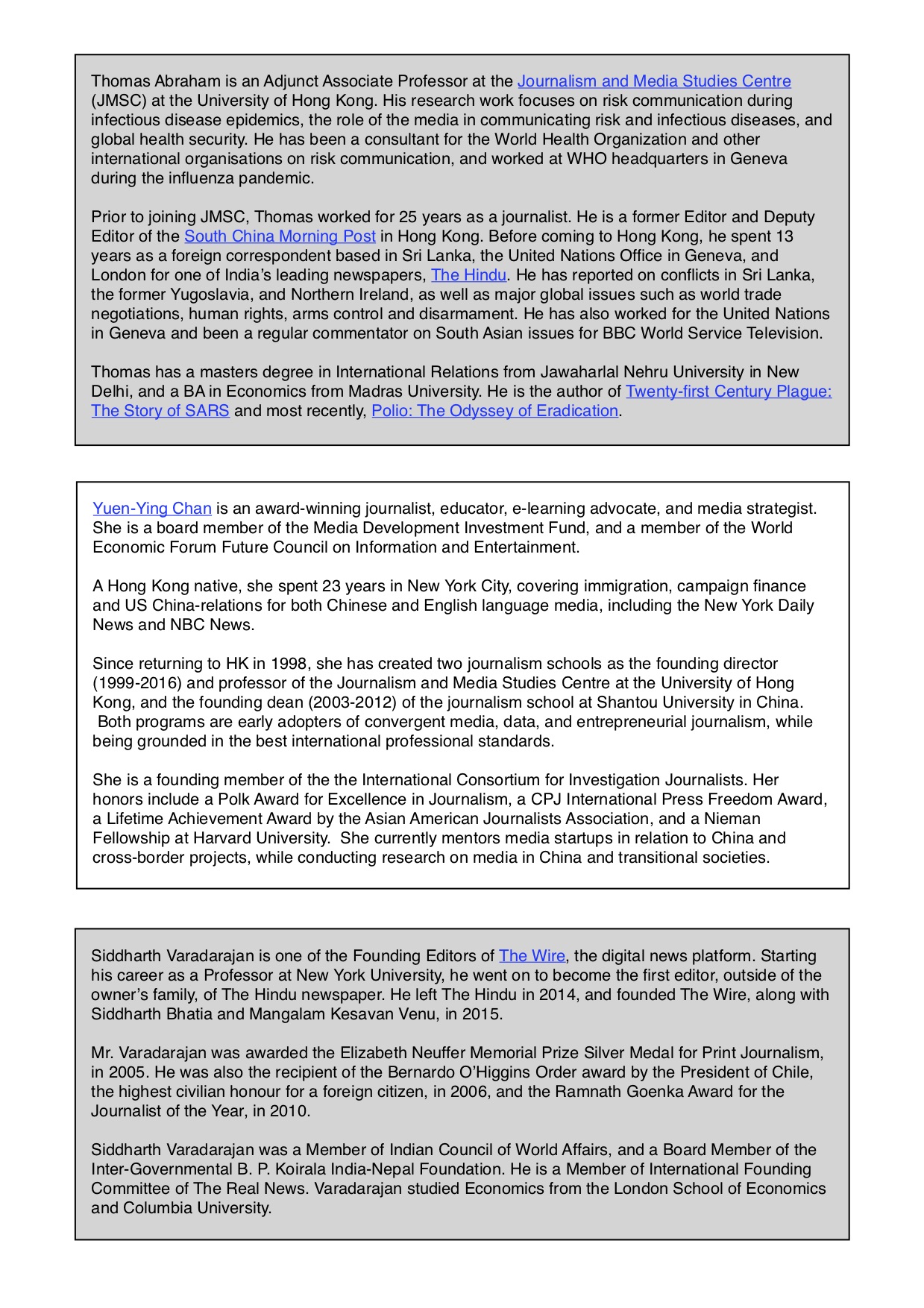We’ve had balcony concerts. Livestreams. Living room jam sessions. Pots and pans banging. And clapping. (So much clapping). We’ve been inspired by the talent, generosity and spirit on display. But continue to ask: what next?
What happens when the music stops, but the surveillance doesn’t? When bands return to stadiums, but emergency powers don’t return to the statute books? When the ‘new normal’ becomes the same old scope creep? When beaches reopen, but migrant worker dorms don’t?
Announcing our new webinar series When the Music’s Over, where we bring together an array of scholars, practitioners, and artists, to parse and reimagine the evolving post-COVID19 landscape. We’ll talk rights, norms, policies, practices and artifacts. And we’ll do it with a particular focus on power, inequality, access and vulnerability. In Asia, and beyond.
On April 30 we kicked off the series with Thomas Abraham, in conversation with media icons Yuen-Ying Chan and Siddharth Varadarajan.
Over the course of the one-hour webinar, speakers touched on how the pandemic has exposed inequalities in societies across the region, especially in India where concepts like social distancing and hygiene have no meaning without fundamentals like space and water. The pandemic presents an opportunity to find new ways of thinking and approaching problems like education, digital access, and media polarisation. One of the future flashpoints to pay attention to is vaccinations and affordable access. The event was attended by over 35 live participants from universities, think tanks, governments, and international agencies,in Asia and around the world.
This will be a regular series in the coming months. To receive updates on future events follow Digital Asia Hub on Twitter or signup to our mailing list.




